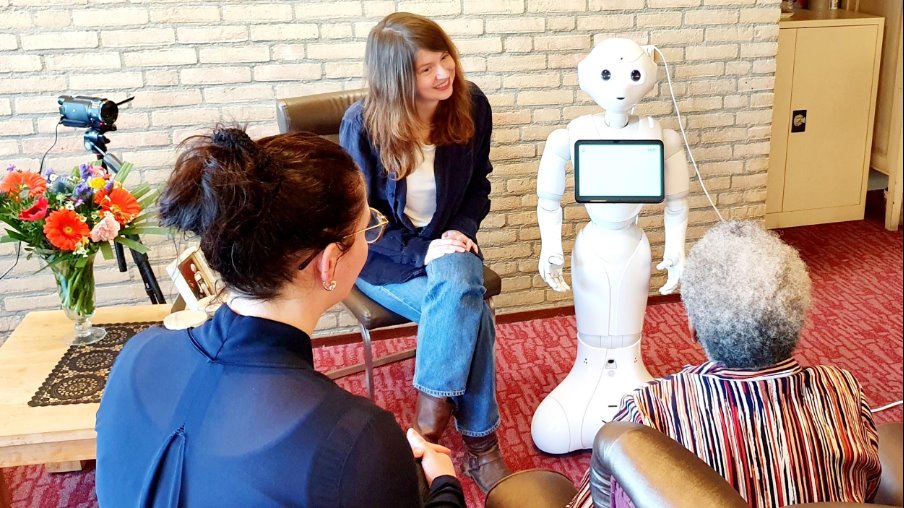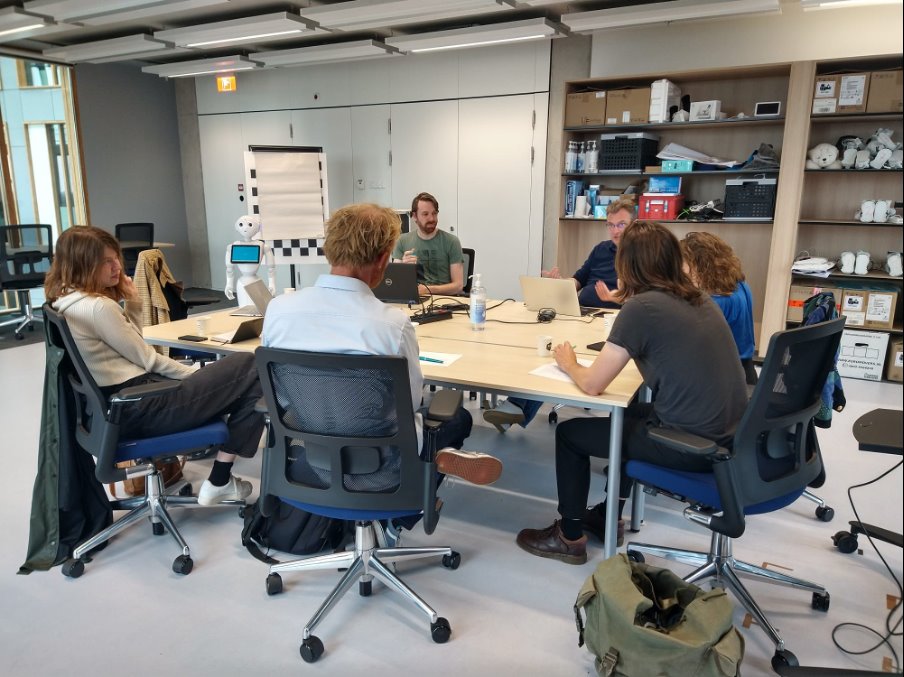The robot as storyteller
One way to shape meaningful interactions is by telling stories to people who suffer from dementia, as a conversation starter. Social robots can be a means for creating more opportunity for such activities: the robot as storyteller. In the KIEM episodes of the project Robotstories, where this was tried out, positive effects of the use of social robots could indeed be observed. One of the healthcare partners said during the evaluation of the KIEM edition of Robotstories:‘Our residents wanted to ‘help’ the robot. When it comes to meaningful interactions, I think this counts as such. They increased their ability to adapt. With human contact, our patients are always the one who is struggling. But the limitations of the robot allowed them to be the caring partner.’
Innovation in both healthcare and writing practices
Healthcare professionals regard social robots as a partial solution for the acute labour shortage. For example, by deploying them in the role of assistant or conversation starter in situations that allow for blended care. Simultaneously, speech writers for social robots see this interactive platform as a new medium for publishing their stories. One that can increase the impact of their stories and extend their reach towards a socially relevant domain. This demands new writing strategies and new artistic competencies from them.
Robots coming to life
The social robot becomes an actor, a story teller. This turns the meaningful interaction into a performative act. To bring the robot to life, and give it a soul, the suggestion of an inner mental world is important. If this is realised, the interaction can stay meaningful for a longer time, and the positive effect on people with dementia might endure longer as well.
Writers and theatre producers possess embodied knowledge about animating texts and objects in a theatre context. This is also applicable to social robots who act as story tellers. Social robots currently still lack the conversation skills to give shape to flexible and more long-form meaningful interactions. In particular for our target group: people with dementia.


